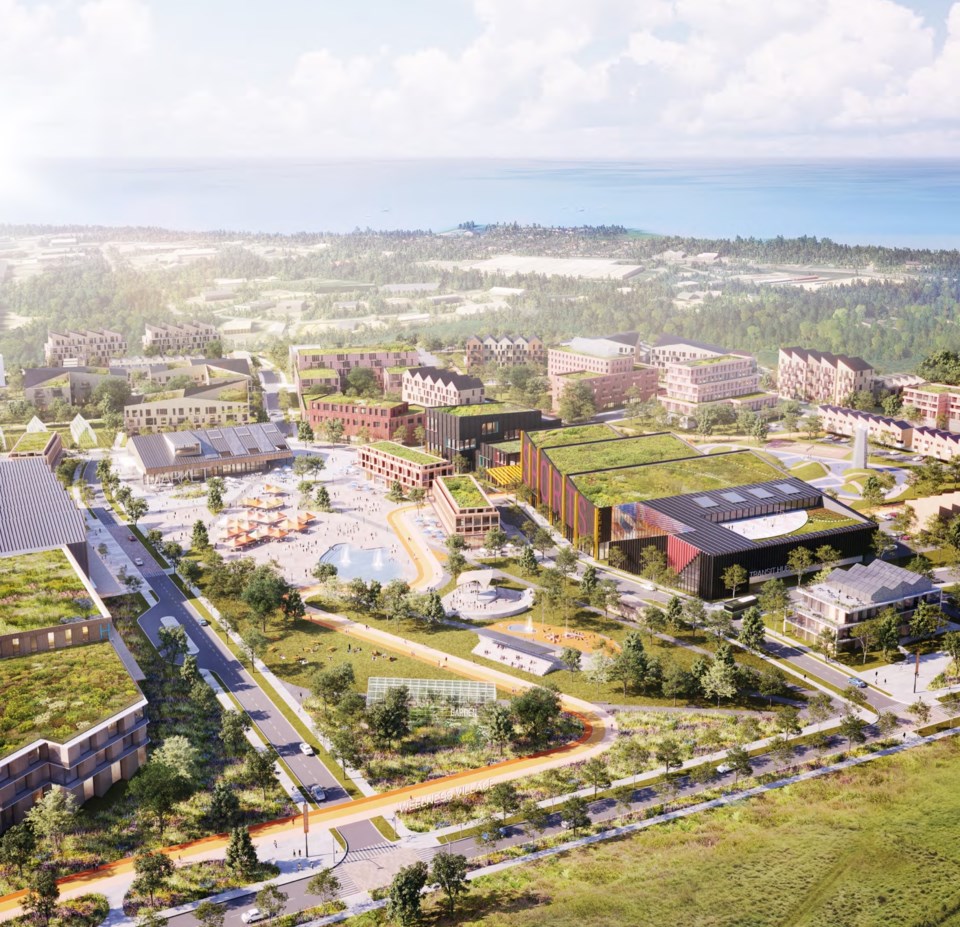The Poplar Regional Health and Wellness Village minister’s zoning order (MZO) is now under the microscope, according to the provincial housing minister.
On Dec. 13, Minister of Municipal Affairs and Housing Paul Calandra announced the province would be enhancing its monitoring of certain MZOs that have made limited progress.
On that list is the order approved for the Poplar Regional Health and Wellness Village in Collingwood in November 2022. According to the province, the Poplar MZO is being reconsidered due to a “lack of downstream implementation and lack of water or wastewater servicing.”
“I have always been clear that if we do not see the results we expect from a zoning order, our government will not hesitate to amend or revoke it,” Calandra said in a news release. “This approach sends a clear message that when our government issues a minister’s zoning order to support priorities such as housing or long-term care, we expect to see results.”
However, when reached for comment on Wednesday afternoon, Armando Lopes, vice-president of development for Di Poce Management Ltd., said he’s not worried.
“In response to today's provincial release, we take it very seriously but are not concerned,” Lopes said in an emailed statement. “As announced yesterday via a joint news release, the development agreement was executed between Di Poce Management Ltd. and the town and we look forward to collaborating together on the project and updating the minister on our progress.”
Earlier this week, the town announced it had finalized and signed a memorandum of understanding with Poplar Village developers Live Work Learn Play Inc. and Di Poce Management Ltd. after a year of negotiation, to ensure what the developer was promising is what would be delivered on the project.
The Poplar Regional Health and Wellness Village proposal for 130 acres on the northeast corner of Poplar Sideroad and Raglan Street was first brought forward to Collingwood council in March 2022.
According to the initial vision for the project presented to council, there will be seven key areas incorporated into the design of the village, including a regional health and wellness campus, a market district, long-term care/assisted living facilities, bioscience and medical research facilities, an eco-wellness centre, a regional transit hub, student and workforce housing, and sports medicine clinics.
The developers intended to seek an MZO — a controversial provincial tool to fast-track a change of zoning on a piece of land with provincial authority bypassing the municipal zoning process — to change the zoning of the property from industrial to mixed use to allow for the community hub-style development.
An MZO for the project was approved by the province on Nov. 16, 2022.
According to the draft MZO, the land to be developed must include a minimum of 10 per cent attainable/affordable housing and 60,000 square metres of employment in the form of office, institutional and light industrial uses. Other additions to the overall plan that were included in the MZO were that a block plan and a phasing plan must be submitted prior to any building permits being granted for the project, and a five-kilometre, all-season, multi-modal trail system must also be constructed on the land. Included in that MZO was added language allowing the proposed development to reach 12 storeys in height, superseding the existing Official Plan.
When reached for comment on Wednesday afternoon, Mayor Yvonne Hamlin said she was aware the province was looking at the Poplar Village MZO as part of its review of MZOs provincewide, first announced in September.
“It’s not a total surprise that we’re seeing this,” said Hamlin.
She noted that in regard to water or wastewater servicing, without a site plan received by the town as of yet, there’s no way to know when the project would start drawing on the town’s water, and it could be after the new water treatment plant comes online, expected sometime in 2028-29.
“It’s hard to say whether this project will be impacted or not,” she said. “Will there be competing demands the year they want some capacity? It’s a big project. It will proceed over a number of years and phases.”
When it comes to a lack of downstream implementation, Hamlin pointed to the agreement signed this week by the developer and the town.
“I will say it has been ready to be signed for months. They hadn’t given it priority,” she said. “Now, it’s in good shape and we’re happy with it.”
The province is consulting with the public, municipalities, proponents, landowners, and other stakeholders, and is asking for them to share any feedback that may help to inform decisions on the MZOs, with consultation closing Jan. 27, 2024.
Comments can be provided here.



